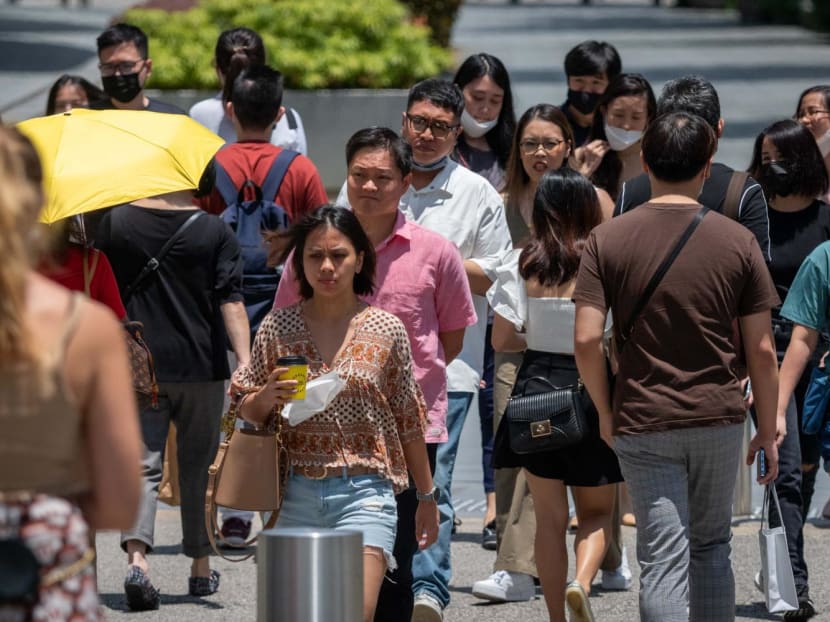Explainer: Should govt agencies standardise different methods for means testing and what impact does inflation have?
SINGAPORE — A proposal unveiled on Monday (July 4) to set up a Public Defender's Office to help those with limited resources obtain legal aid has thrown the spotlight on the various different approaches here to means testing, as well as calls for regular reviews of such schemes given higher levels of inflation.

- The Ministry of Law proposes to set up a Public Defender's Office to help those with limited resources obtain criminal legal aid
- This includes a change from the means test currently used for the Criminal Legal Aid Scheme, which measures an applicant's disposable income
- Instead, the new office would look at the per capita gross monthly household income, that is, taking account of all members of a household
- Various government ministries use different approaches to means testing
- Some MPs would like to see a streamlining of means testing schemes, and recognition of the impact of higher levels of inflation on such schemes
SINGAPORE — A proposal unveiled on Monday (July 4) to set up a Public Defender's Office to help those with limited resources obtain legal aid has thrown the spotlight on the various different approaches here to means testing, as well as the calls for regular reviews of such schemes given higher levels of inflation.
Means testing is a method to calculate the subsidies people receive based on factors such as household income, in order for government assistance to be targeted towards the economically more vulnerable.
Across various ministries in Singapore, several methods are used for means testing.
In outlining the Public Defender's Office proposal, the Ministry of Law (MinLaw) said the idea is for people to receive criminal legal aid if their per capita gross monthly household income is up to S$1,500.
That would represent a change from the current Criminal Legal Aid Scheme (Clas) to bring it in line with some other social schemes administered by the Government.
To qualify under Clas’ existing income criterion, the applicant’s disposable income should not exceed S$10,000 over the last 12 months. This is equivalent to a per capita gross monthly household income of S$950.
TODAY takes a look at the different measurements used in support schemes and spoke to Members of Parliament (MPs) about whether these means tests should be streamlined and reviewed in light of creeping inflation.WHAT ARE THE VARIOUS METHODS OF MEANS TESTING?
Monthly per capita household income (PCHI) is computed as the total gross household monthly income divided by total number of family members living together in the household (determined by National Registration Identity Card address).
This is among the most widely used method of means testing across many agencies in Singapore and the approach proposed for the Public Defender's Office.
Gross monthly household income (GHI) includes basic employment income, trade/self-employed income, overtime pay, allowances, cash awards, commissions, and bonuses.
Annual value (AV) is the estimated gross annual rent of a property if it were to be rented out, excluding furnishings and maintenance fees. It is determined by the Chief Valuer’s Office based on estimated market rentals of similar or comparable properties, and not on the actual rental income received.Disposable income includes salary, rental income, and other allowances and payouts alongside the income of one’s spouse in the past 12 months, after deducting S$6,000 for the applicant, S$6,000 for the working spouse, up to S$6,000 for each dependent and the applicant’s and spouse’s contributions to their Central Provident Fund.
WHICH MEANS TESTS ARE USED WHERE?
For premium subsidies involving healthcare schemes and services such as MediShield Life, CareShield Life, the Community Health Assist Scheme and the Foreign Domestic Worker (FDW) Grant, monthly PCHI is used as a criterion for many tiered subsidy systems.
In some schemes, where PCHI is not applicable, AV of residential property is used to determine subsidy tier.
Similarly, the Ministry of Manpower also uses PCHI as means testing for its Silver Support Scheme, which provides a quarterly cash supplement to seniors who had low incomes during their working years and now have less savings in their retirement.
In matters of education, PCHI is used alongside GHI for the Ministry of Education (MOE) Bursary and Higher Education Bursary to enhance the affordability of higher education for part-time students studying at publicly-funded post-secondary education institutions.
The Ministry of Social and Family Development (MSF) also makes extensive use of PCHI, along with gross monthly household income for its schemes.
SHOULD RATES USED IN MEANS TESTING BE REVIEWED?
MPs interviewed by TODAY agreed on the importance of a standard means test, such as the PCHI, and also acknowledged the need for reviews given persistently high levels of inflation, that is rising prices of goods and services.
Tanjong Pagar Group Representation Constituency (GRC) MP Joan Pereira said it would be good to streamline such criteria “wherever possible”, for ease of comprehension and administration.
“I think the different schemes have slightly different ways of applying the criteria, for reasons specific to these schemes," she said.
"There are certainly pros and cons to what criteria the ministries choose to use when administering schemes. The usage of PCHI, for example, is premised on members of the same household looking out for one another,” Ms Pereira added.
One way to measure the need for review will be if there are more people who are facing significant hardship despite falling outside the criteria, she said.
“As MPs we can pick that out from the appeals that we get from residents via our MP sessions, home visits or walkabouts. That will be a good indicator to bring such issues up in parliament to ask the ministries to do a review of the criteria levels.”
Yio Chu Kang Single Member Constituency MP Yip Hon Wen said that means testing needs to balance the policy considerations of fairness and ease of administration.
“PCHI is currently used by the Government as an easy and straightforward option to assess one’s ability to pay for public services," he said.
Mr Yip added that the more important thing is to ensure that the measure is relevant and accords the appropriate level of govt subsidies to residents in need.
One possible way forward to ensure that the PCHI criterion level remains relevant is to ensure that it is reviewed periodically, to ensure that economic factors affecting Singaporeans such as inflation are considered, he said.
Aljunied GRC MP Leon Perera said PCHI should be used instead of GHI given that a home with many members would incur more expenses than one with fewer, other things being equal.
“But other things are not always equal. Such shared criteria should embrace definitions that recognise that some families would incur higher expenses — for children with special needs or elders with chronic conditions, for example.”
HOW OFTEN SHOULD REVIEWS OCCUR?
West Coast GRC MP Ang Wei Neng remarked that PCHI needs to be reviewed regularly to take into account the inflation rate.
“Inflation has hit Singaporeans hard in the last one year... At the same time, healthcare costs are also rising. Hence, it is timely for MOH to review the per capita income criteria for health care subsidies to take into account the steep inflation.West Coast GRC MP Ang Wei Neng”
“Inflation has hit Singaporeans hard in the last one year, eroding our purchasing power. At the same time, healthcare costs are also rising," he said.
“Hence, it is timely for the Ministry of Health to review the per capita income criteria for health care subsidies to take into account the steep inflation.”
As for the effects of inflation, Ms Pereira mentioned that there have been other schemes introduced since 2019 to support the more vulnerable through the pandemic as well as through the current period of inflation.Minister for Social and Family Development Masagos Zulkifli stated in his reply in Parliament to WP MP Sylvia Lim on Monday that MSF reviews the ComCare income criteria regularly, and will be reviewing it again later this year.
This was reviewed in 2012 and also in 2019. Similarly, the Ministry of Health made its recent review of means testing in 2019 and MOE in 2020.











